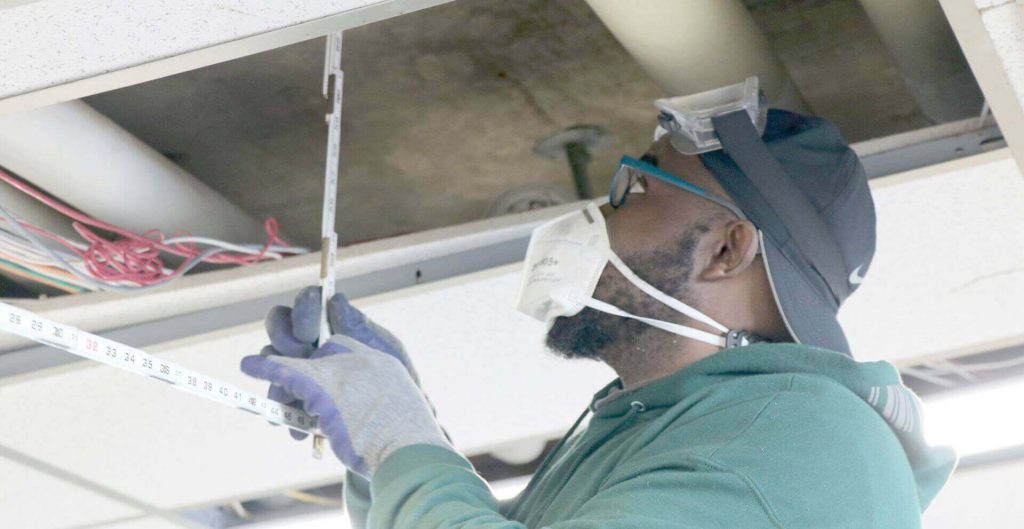Plumbers are competent in installing and retaining piping and water systems in residential and commercial settings. These professionals learn through educational courses in plumbing trade schools and on-job experience. Working in various atmospheres and on several types of projects allows plumbers to formulate many specialized skills. Here the essential things you need to learn at plumbing trade schools are explained. This will help you enhance plumbing skills and accentuate them on your resume and in an interview.
A plumber must concentrate on residential or commercial projects. They can repair prevailing plumbing systems or install systems in newly designed buildings. Each plumbing project can compel specialized skills, while others much to understand and remember at the start of the plumber training program. Unfortunately, plumbing courses are no different. From technical language, building codes, tool names, and procedures to just learning classmates’ names, it can initially feel overwhelming.
However, your knowledge and enthusiasm will grow with adequate instruction, hard work, and hands-on practice. Therefore, you must follow these five simple yet most important things, and you’ll do just fine in plumber courses and throughout your career.
An excellent pre-apprenticeship plumber program and job training will provide students with equipment they can use during training and take with them to start an apprenticeship. However, you will be required to add to this collection throughout your career, and any good plumber will tell you it’s worth investing in the best equipment you can get.
A high-end, appropriately maintained tool will significantly influence the quality of your work. Also, don’t forget, this encompasses attire, decent socks, boots, safety gear, and the right costume for working in cold temperatures.
The golden safety rule of plumbing is to keep your hands out of your eyes, nose, and mouth and never bite your fingernails.
You will be exposed to chemicals and bacteria, so guard yourself with gloves and safety glasses.
Of course, you will also be required to pay close attention when operating in confined areas and at heights, and be sure to follow the safety protocols you’ll learn in training for plumbing. Your employer and co-workers should prioritize security, but it’s up to you to protect yourself, apply good practices, and keep alert.
Your employer and clients will always carefully anticipate the job’s being done the first time. Nobody likes call-backs, and it is common for minor details to go unnoticed when you are just starting to take the time to double-check your work.
Finance a few additional minutes to test out the trench you unclogged, the seal you fixed up, the pipe you installed, and understand your local plumbing requirements and principles like the back of your hand.
In improving hands-on work, plumbers should be eligible to use entire computer programs, such as word processing and spreadsheet programs, plus any plumbing apprenticeship programs or software, such as project management or budgeting programs. You may also assess formulating a working knowledge of any computer programs commonplace in your business.

It is no big deal to come to class a few minutes late, but later on, your employer will not take kindly to your unreliability. You must compensate for your lack of training and plumbing abilities with hard work, respect, and reliability. Therefore, you need to plan to reach early and make sure you are prepared to learn and work with the adequate tools, a good night’s sleep, and an optimistic attitude.
And even after you’ve earned many years of knowledge, punctuality will proceed to play a significant role in transmitting superior customer service. Whether acknowledging an emergency or preparing a routine maintenance visit, showing up on time is vital for building trust with customers and proving that you are a true professional.
Plumbers may also be required to write reports and have essential proper spelling, grammar, and vocabulary information. In addition, they may be required to accomplish assignments that expect organizational and planning skills, such as tracking expenses, taking inventory, ordering supplies, and planning project calendars.
You will go through several years of teaching how to become a certified plumber. Make the most of your trade discipline and apprenticeship to absorb everything you can from developed pros.
This begins during plumbing courses, where you will train with plumbers with many years of experience and knowledge. You need to keep your eyes and ears open for opportunities to pick up new aptitudes, and additional tips and prevent common errors.
Building the habit of observation and continued learning will fulfill you well during your whole plumbing career. There is always something new to learn, not just from fellow plumbers.
When you are out on a job site, retain an eye on HVAC techs, electricians, and carpenters to comprehend relevant characteristics of the building and maintenance process. After all, all of these procedures and skills are related, and it enables you to understand the big picture. These skills can be learned from plumbing trade schools in Spring Garden, Mill Creek, Collingswood, NJ, Audubon, NJ, Northeast Philadelphia, etc.
Employers commonly investigate these skills during interviews and may ask you to illustrate your skills or to deliver additional examples of how you have utilized your skills on the job. Therefore, before your interview, think about your unique qualifications and skills, brainstorming specific situations in which you need to use them. For example, think about when you require powerful communication skills to work with a demanding client.
Analyze your resume to formulate to embellish your skills and understanding. For example, if your resume lists the machinery and equipment you use, be prepared to share what programs expect those tools or any technical training you have for them.
Read More: